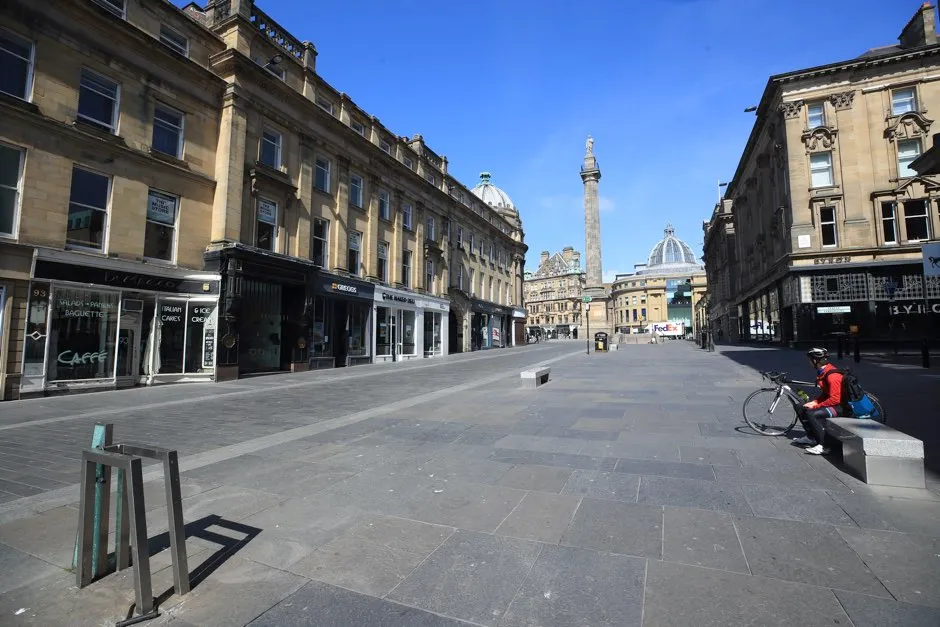Staying at home has led to a notable reduction in the hum of ground vibrations in the UK generated by human activities such as air and road traffic and industrial work, geoscientists have said.
Experts said that compared to noise levels before lockdown, signals from seismometers across the country show ambient noise caused by people going about their daily lives has dropped between 20 and 50 per cent in the last five weeks.
Seismometers are normally used to record earthquakes and volcanic activity, but they also track the vibrations in the planet’s upper crust, or seismic noise, caused by humans.
Read the latest coronavirus news:
- Coronavirus will circulate 'for many many years to come'
- People aged 60-69 also at high risk, experts warn
- Coronavirus: contact tracing app could stop spread if 80 per cent use it
Dr Brian Baptie, head of seismology at the British Geological Survey in Nottingham, told the PA news agency: “We have got a network of around 100 sensors all across the UK measuring seismic activity.
“What we have since lockdown is that noise levels at nearly all of our stations have gone down by somewhere between 20 per cent to 50 per cent.”
The experts said the reduction in seismic noise has been higher in areas where there is a lot of human activity, such as airports, train stations, busy roads, construction sites and even schools and universities.

Dr Paula Koelemeijer, a global seismologist at Royal Holloway, University of London, said a seismometer located near London King’s Cross station in London recorded a 30 per cent drop in seismic noise while a device at her home in Twickenham in west London has shown a noise reduction of 25 per cent, compared to the pre-lockdown noise levels.
She told PA: “This suggests more people are in their houses, there is less car traffic, and fewer trains are running.”
Meanwhile Dr David Cornwell, a geophysicist at the University of Aberdeen, said compared with peak noise during a normal day, the noise levels at his university campus have dropped by 65 per cent since students were sent home five weeks ago.
This meant some of his seismometers are able to pick up natural noises, like those generated by the wind and the sea, he added.
How to stay safe, happy and productive during lockdown:
- Which science and tech shows to stream, watch and listen to during lockdown
- Lockdown: why is social isolation so hard?
- 10 science-backed tips to help you work from home successfully
These effects have also been observed around the world, with more than two billion people currently staying at home.
Dr Cornwell told PA: “Globally, other seismologists have reported noise levels in cities to be between 20 per cent and 50 per cent lower compared to the noise levels recorded before lockdown, but there have been a few cases, such as one in Nepal, where the reduction has been as large as 80 per cent.”
The drop in human-generated noise has also given scientists an opportunity to spot smaller earthquakes and other seismic events from around the world.
Dr Cornwell told PA: “If a minor earthquake happened in Japan, I would be able to record it in my office or in our instruments across the UK.”

Meanwhile, Reuben Peckham, director of 24 Acoustics, a consultancy firm which helps architects design noise-sensitive buildings, said his sound-measuring instruments at a construction site in Surrey have been picking up unusual noises during the day, like the sounds of birds, that would normally be masked by the noises from heavy traffic or construction machinery.
He told PA: “Birdsong has definitely been more prevalent in our monitors since lockdown.”
How can I protect myself from the coronavirus when shopping?
You’ll have seen signs in your local supermarket advising you to keep two metres from others while moving around the store. This is key to reducing your chances of catching the virus while shopping.
The coronavirus SARS-CoV-2 is spread through respiratory droplets that leave our mouth and nose when we cough, sneeze, or sometimes even talk. The droplets sprayed out by an infected person will contain the virus, which could then enter your body via your mouth, nose or eyes (this is why you shouldn’t be touching your face).
Respiratory droplets don’t usually travel more than one metre, so by keeping two metres from others, you’ll reduce the likelihood of being in the firing line. To make it easier to keep your distance, try to shop during off-peak hours, choose a store that’s limiting the number of people who can be inside at any one time, and use self-checkout if you can.
Keeping your hands clean is the other main thing you can do. If possible, wipe the trolley or basket handles with a disinfectant wipe when you arrive at the store. When you get home, wash your hands or use hand sanitiser before and after unpacking your bags.
A US study found that the coronavirus can survive for up to 24 hours on cardboard, and up to three days on hard, shiny surfaces such as plastic, so wiping down your purchases with a disinfectant spray or a soapy cloth before you put them away is another good habit to get into.
Read more:
